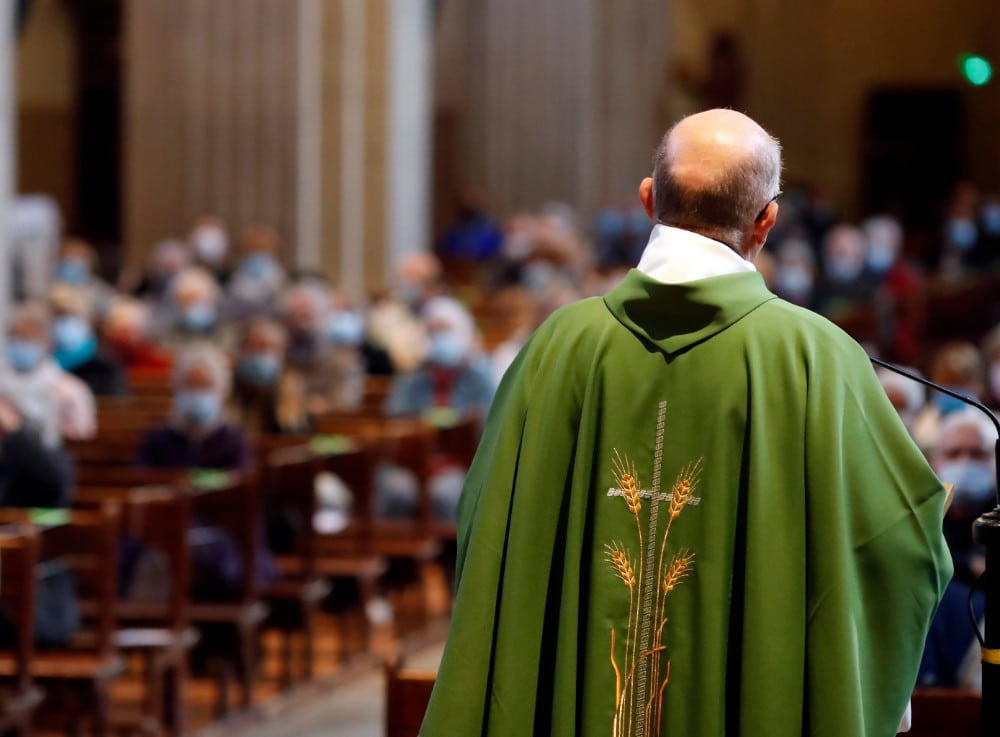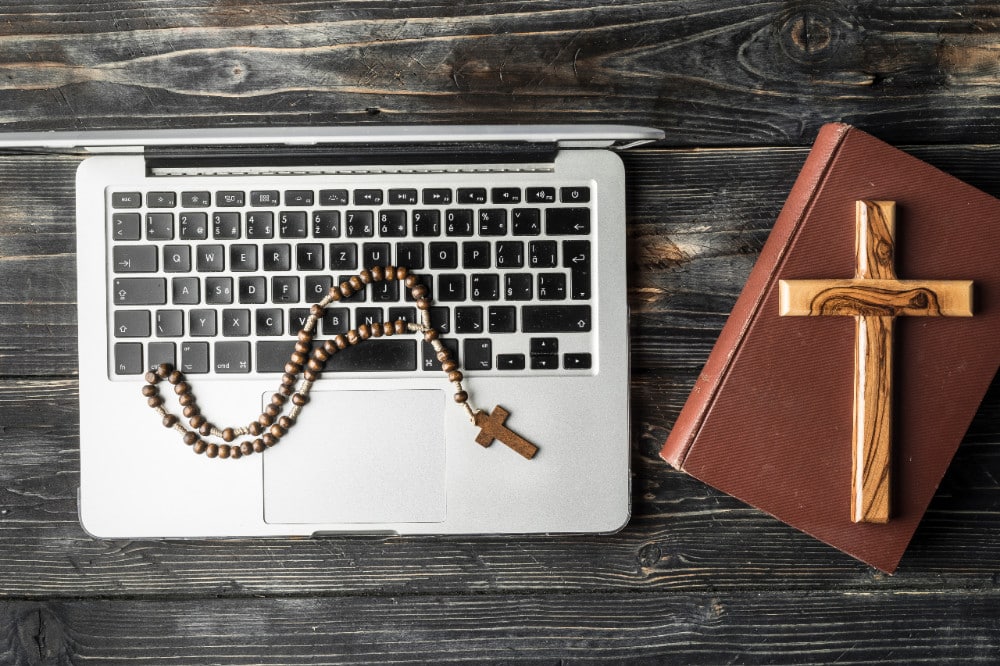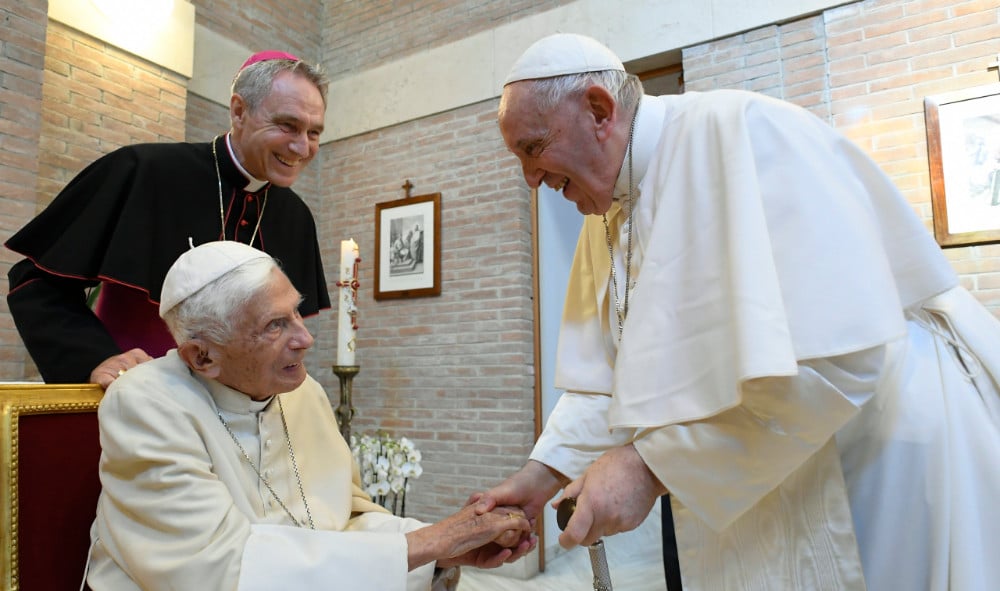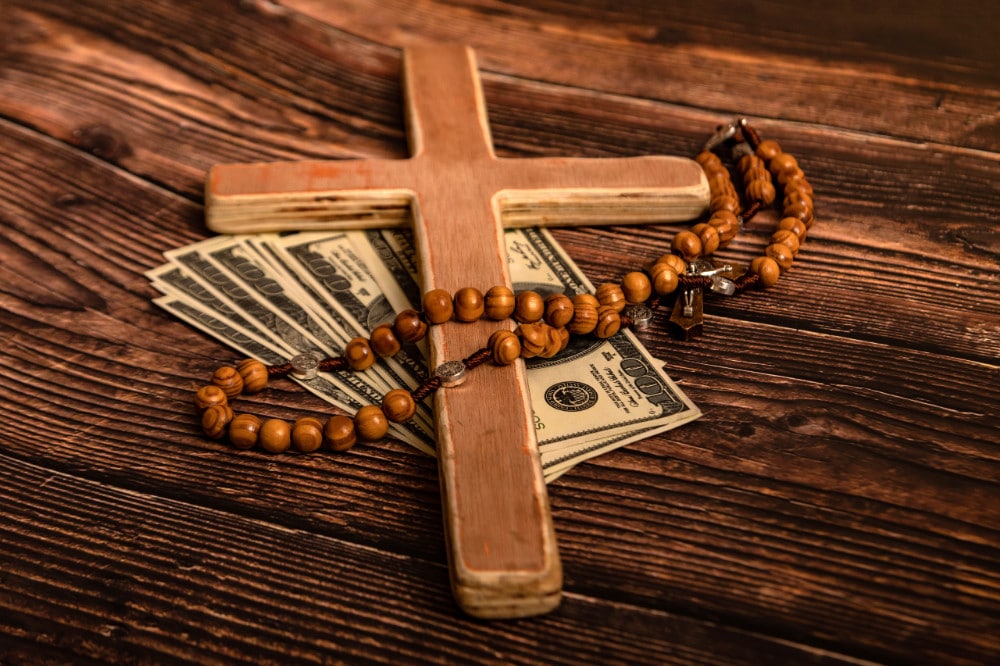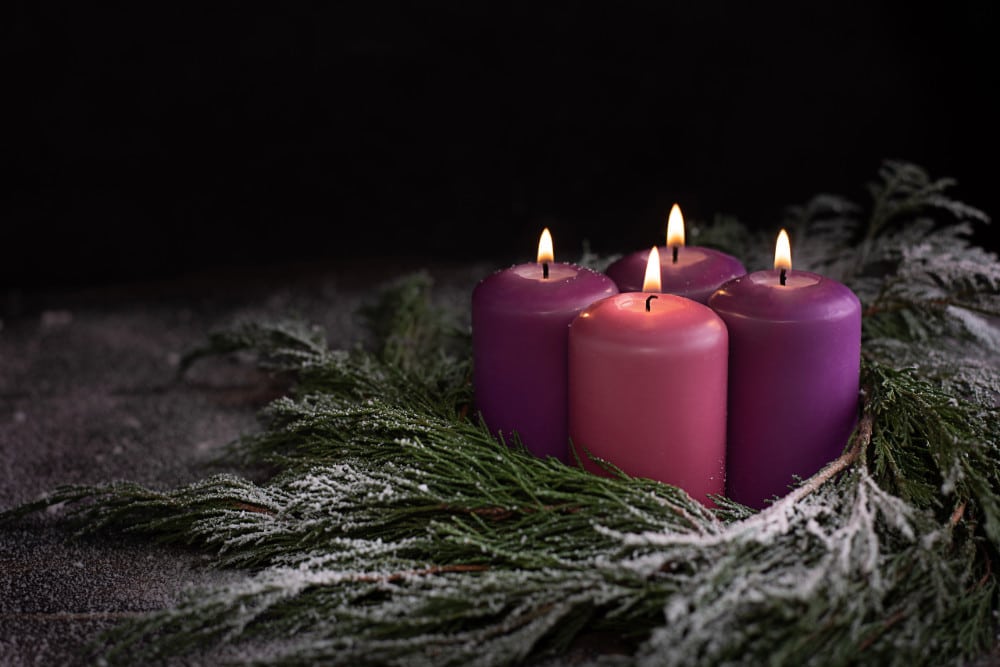Kyrie Irving’s suspension from the Brooklyn Nets, announced last week, may have caught many Catholics by surprise. Irving was suspended for failing to “unequivocally say he has no antisemitic beliefs.” The controversy arose from the NBA star’s promotion of a 2018 film titled “Hebrews to Negroes: Wake Up Black America.” The film is derived from a deeply problematic book of the same name.
The book — which, as of this writing, was No. 1 in African American Demographic Studies and No. 2 in Christian Education on Amazon.com — contains blatantly false antisemitic propaganda of the most vile and contemptible sort. “Hebrews to Negroes” denies the deaths of 6 million Jewish people in the Holocaust. Further, the book contends that Our Blessed Lord, Jesus Christ, was not a Jew. But the main racial claim of the book is that today’s Jews have appropriated Black culture. According to the thesis, Black Americans are the true descendants of the Israelites of the Bible.
Since it was announced that he’s been suspended (for a minimum of five games without pay), Irving has taken to Instagram to say, “To All Jewish families and Communities that are hurt and affected from my post, I am deeply sorry to have caused you pain, and I apologize.”
The controversy surrounding Irving’s tweet and his initial refusal to apologize is worth thinking about as Catholics. First, we must acknowledge the hurt this antisemitism has caused in Jewish communities. There is no place in our society for this blatant prejudice. Moreover, claims made in “Hebrews to Negroes” directly assault the integrity of our own faith. We know that Jesus Christ was a Jew. Our Scriptures teach us that his parents honored the traditions of Israel (cf. Lk 2:22-40) and that he kept the custom of going to a synagogue on the Sabbath (Lk 4:16).
At the Second Vatican Council, the Church declared, “Mindful of the patrimony she shares with the Jews and moved not by political reasons but by the Gospel’s spiritual love, [the Church] decries hatred, persecutions, displays of antisemitism, directed against Jews at any time and by anyone” (Nostra Aetate, No. 4). Historical displays of Catholic antisemitism were once grounded in an erroneous theology that attributed to all Jews the guilt of the death of Jesus (cf. Jn 19:6). However, the Second Vatican Council asserted, “Jewish authorities and those who followed their lead pressed for the death of Christ; still, what happened in His passion cannot be charged against all the Jews, without distinction, then alive, nor against the Jews of today” (Nostra Aetate, No. 4).
While the annals of history include horrors like forced conversions and expulsion of Jews endorsed or enabled by the Church’s hierarchy, the tragedies of the 20th century should not be lightly forgotten, since important advances in Jewish-Catholic relations have been made.
Under Pope St. Pius X, the Holy Office formally condemned antisemitism in 1928. After speaking out against Nazi racism in an encyclical letter read in German in all the Catholic churches of Germany in 1937, Pius XI told Belgian pilgrims in 1938: “Antisemitism is unacceptable. Spiritually, we are all Semites.” Pius XII denounced one of the pernicious errors of his day describing “the forgetfulness of that law of human solidarity and charity which is dictated and imposed by our common origin and by the equality of rational nature in all men, to whatever people they belong.”
In 1988, Pope St. John Paul II condemned antisemitism, telling a group of Jewish leaders in Strasbourg, “I repeat again with you the strongest condemnation of antisemitism and racism, which are opposed to the principles of Christianity.” And in 1998, in the preface to “We Remember: A Reflection on the Shoah,” John Paul II expressed hope that the repentance of the Catholic Church “will indeed help to heal the wounds of past misunderstandings and injustices.” In particular, that document asks forgiveness for those Christians who did not do enough to help or intervene on behalf of the Jewish people. And as the Church welcomed the new millennium in 2000, John Paul II again asked for forgiveness for the sins committed against Jewish people.
Further, in 2008, out of respect for the Jewish people and their reverence for the Holy Name of God, the Congregation for Divine Worship and the Discipline of the Sacraments issued an instruction that the Hebrew name for God (YHWH) was not to be pronounced in Catholic worship.
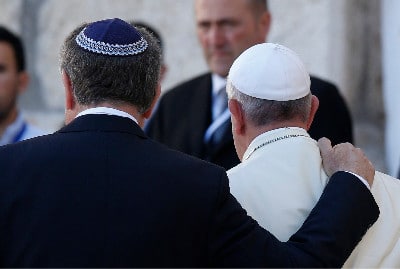
To aid the cause of forgiveness and dialogue, Catholics cannot hesitate to condemn, clearly and unequivocally, the currents of antisemitic thought and speech around us. We owe it to our brothers and sisters in Abrahamic faith, “the first to hear the word of God” (Roman Missal), to speak out against those strains of ignorance and malice that threaten the treasure of our common tradition.
In an address to the International Jewish Committee on Interreligious Consultations, Pope Francis encouraged Jews and Christians to draw on our common patrimony in order that we might “work together in an effort to counter certain negative trends found in our Western societies: idolatry of self and of money, extreme individualism and the culture of indifference and of waste.” Indeed, all Christians are called to reject antisemitism wherever this tortuous beast rears its head and prefer instead the shared work of a common biblical tradition in pursuit of the one God, living and true.
Our Sunday Visitor Editorial Board: Father Patrick Briscoe, Gretchen R. Crowe, Scott P. Richert, Scott Warden, York Young


